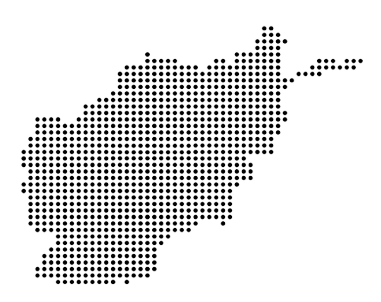
Deadline of Submission: 15.April.2017
The Afghan Civic Engagement Program (ACEP) is a five-year program, funded by USAID and implemented by Counterpart International in partnership with Internews Network, the Aga Khan Foundation (AKF), and The International Center for Not-For-Profit Law (ICNL). The program promotes Civil Society and Media Engagement to enable Afghan citizens to influence policy, monitor government accountability, and serve as advocates for political reform. To achieve the goal of ACEP, Internews works with local partners to implement activities designed to improve access to information and public affairs information. Efforts to support the media law and creating a regulatory environment, as well as raising the capacity of media lawyers, are the key components of Internews’ educational and research activities which are taking place for the institutionalization of scientific and practical experiences in the areas dealing with media rights.
Hereby, all interested academics are notified that Internews office accepts research applications on topics relevant to Media Law, Cyber Law, internet Law and Communications in Afghanistan in order to increase research activities and encourage researchers to conduct scientific and practical research. Therefore, professors, alumni, and students of the schools of law and journalism who have strong research skills are invited to submit their research projects related to the following topics or any other related theme. Each successful proposal will be awarded a stipend support package of 500 to 1,000 dollar.
1. The title of the research shall be around the following topics:
- The right to freedom of expression and its limits: permissible and impermissible restrictions and conditions which Impose restrictions on the freedom of expression;
- Censorship: self-censorship of the media;
- Access to information: research that will examine strategies that will lead to understanding and improving the correct use of this right;
- Drone journalism: research that looks for legislation in this field or analyzes the related international conventions;
- Rules concerning the contents of the web/the internet;
- Policy of communication and information technology: developing standard strategy of communication networks;
- Freedom of expression and the Internet: research that seeks to apply the right of freedom of speech via the Internet and by any means, including mobile phones, computers etc. to improve the public access to information;
- Online media management / how online media is managed and how it should be managed;
- Media Sociology: what are the criteria for the process of media establishment in a society;
- Digital media and its impact on society: a research that examines the impact of the transition from analog system to digital system in provinces and the opportunities presenting by a competitive environment for high-quality media programs;
- Or any other topic related to information rights and media policy, freedom of expression / information, press offenses, cyber laws, cyber-crime, telecommunication law and cyber security issues.
2. Qualifications of applicants:
- The applicants can be professors, alumni and students of the Faculty of Law and Political Science, Journalism and Sharia, or defense lawyers;
- The applicant must demonstrate the ability and skills for doing the research;
- Has done at least one scientific study;
- Has commitment to do the research at the specified time;
3. Language
The researchers can write the research paper in Dari, Pashto and English languages.
Note: Applicants must submit the following documents till 15th April 2017:
1. The proposal shall contain at least 500 words that includes the following sections:
- Personal information and reasons for interest in the program,
- Work experience and research skills
- Plan / research methodology
- Title of the research and explain the issue
- Hypothesis f. Research questions
- The importance of the research i.e. why the research on selected topic is needed and how it can be used after completion.
- Potential sources used
- Recommendations
2. A sample of the previous study if available
3. Curriculum Vitae, No more than three pages
4. Two references (university professors)
5. Evidence proving that you are a professor, a student or a graduate.
How to send a research proposal
- Please send your proposal to the email address research@internews.org in Word or PDF format. Note: To receive proposals form, please refer click here:
- For more information, you can call us at this contact number 0729440455
